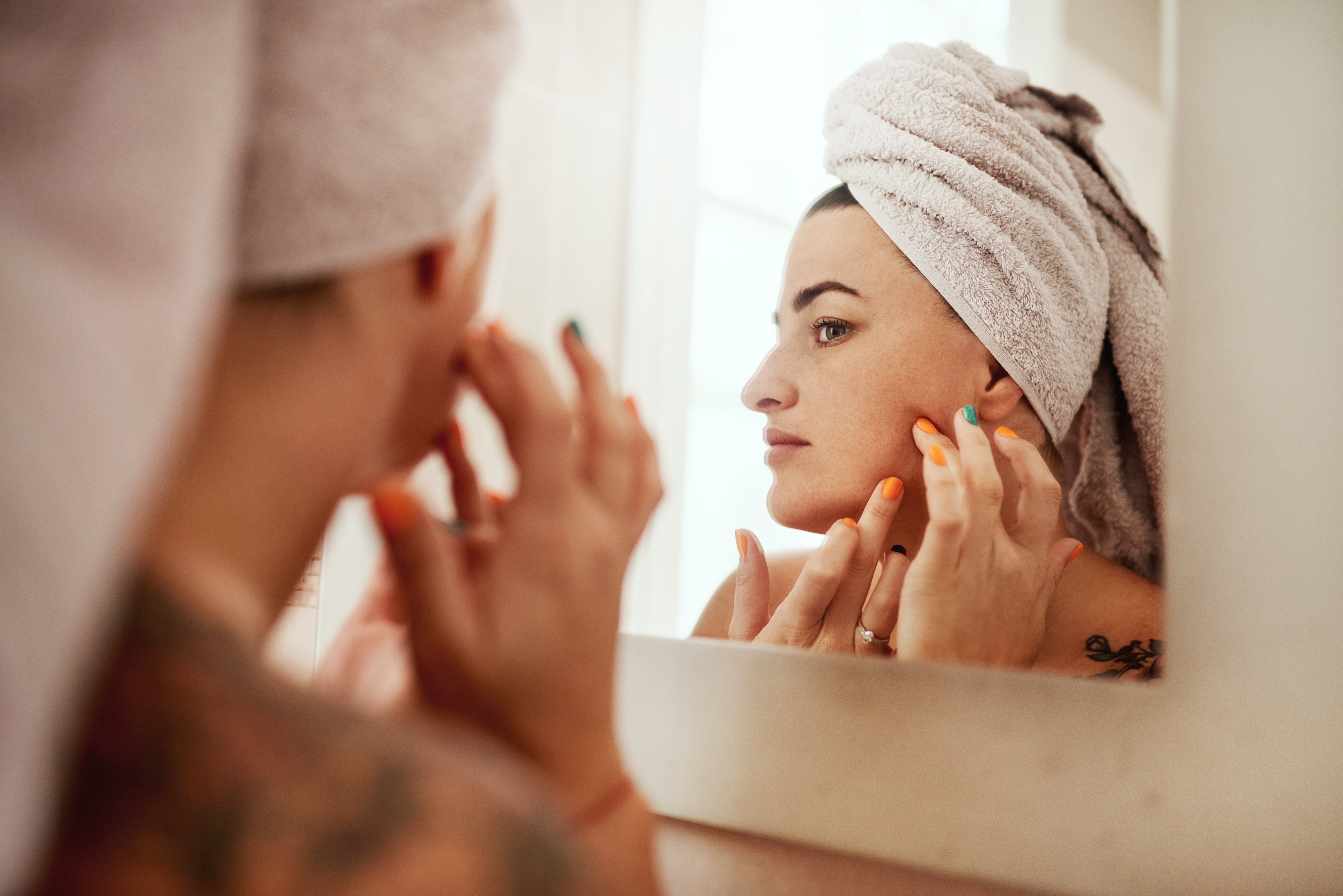I tried everything for my hormonal acne - so I went to a dermatologist for answers
Acne is a part of life, but that doesn’t mean it has to take over

When it comes to clearing my acne, I’ve tried it all - oatmeal scrubs, sheet masks, and even heavy-duty hydrocolloid bandages from the drugstore. But as people who have suffered with hormonal acne will know, it felt like no matter how hard I tried, it just never went away.
Acne problems aren’t just for teenagers. Hormonal acne can rear its ugly head even as an adult. In fact, around 19 per cent of people report having acne over the age of 25. The difference between the acne you develop during the wonder years of puberty and hormonal acne is one is caused by a buildup of bacteria and the other occurs during hormonal changes in the body.
That’s what’s so frustrating about hormonal acne; our bodies are constantly growing and changing, which means we have little control over how these changes impact our skin.
When I came out of teenage years with only one or two pimples a month, I felt like I was blessed by the skincare gods. That is, until I entered my 20s. When everyone else’s face was clearing from the battle scars of puberty, mine was just beginning to see acne. After watching hours of YouTube skincare tutorials, I finally resorted to my last option: the dermatologist.
Even though I waited to get a professional opinion on my acne troubles, seeing a dermatologist is recommended if you are struggling with hormonal acne, as a dermatologist can advise on a number of treatment options made to tackle your acne, like topical medication. However, there are also ways to treat the issue without prescription intervention.
“Over-the-counter, you can look for ingredients like benzoyl peroxide or salicylic acid,” says Dr Joshua Zeichner, an associate professor of dermatology and the director of cosmetic and clinical research in dermatology at Mount Sinai Hospital in New York City, who did not treat us.
Benzoyl peroxide and salicylic acid are two of the most well-known treatments for fighting hormonal acne. “Benzoyl peroxide helps lower levels of acne causing bacteria on the skin and reduce inflammation,” says Dr Zeichner. “Salicylic acid helps dry out pimples and remove dead cells that block the pores.”
And if you’re asking whether there’s even a difference between the two products, the answer is yes. Now do you see why having hormonal acne is so frustrating? Fortunately, both of these ingredients can be found over-the-counter in gels, washes, and spot treatments.
If a 10-step skincare routine just isn’t your thing, there’s also oral medications available to solve your acne woes. “Medications like oral contraceptive pills or spironolactone are effective and commonly used to treat hormonal acne,” says Dr Zeichner.
These oral contraceptive pills, also known as birth control pills, help to regulate hormone levels and prevent the fluctuations that stimulate acne. Combine that with your nightly benzoyl peroxide wash and watch your face clear up in a matter of months.
There are so many confusing, unconventional, and downright bizarre treatments out there that claim to combat acne, such as light therapy, microneedling, and potentially an acne-fighting vaccine. When it came to my hormonal acne, it was important to learn just about every option that was available to me. Now, it’s only been one month since I was prescribed spironolactone and a combination of topical treatments, but I look forward to the day when I’ve cleared my skin once and for all.
Join our commenting forum
Join thought-provoking conversations, follow other Independent readers and see their replies
Comments


Bookmark popover
Removed from bookmarks